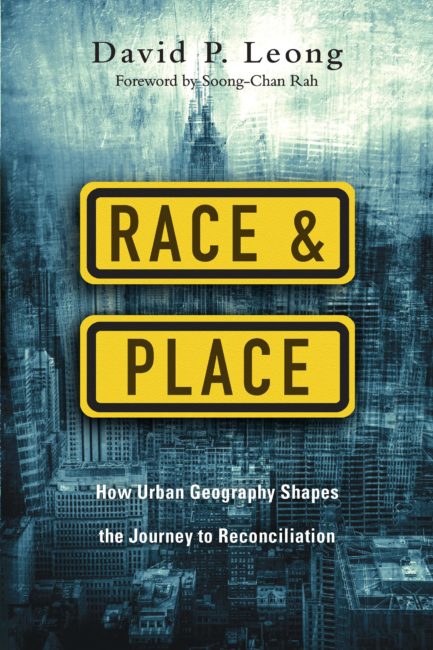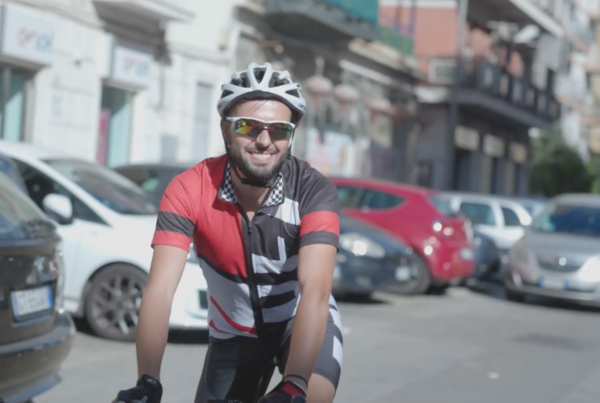I can’t remember who recommended this book to me, but it arrived recently in the post and so I gave it a whirl. I wasn’t too sure what to expect, but I thought reading a book on race, in the context of the current (US-dominated) evangelical war on the issue, might give me some insight and shed some light on our battle with class in the UK.
This is a book about geography and race written by an American-born Chinese man. His main conviction is that: ‘Too many of our lives – especially in our cities – are functionally segregated by issues of race and class.’ (p14) One of his stated aims in the book is to help Christians to think ‘Christianly’ about where they live geographically and how where we live shapes our faith and everyday existence. The book is split into three main parts:
- Race & Place
- Patterns of Exclusion
- Communities of Belonging
For the purposes of time, space, and your boredom levels, I am going to split the review into three separate blog posts.
Part I: Race & Place
From the outset, Leong wants us to understand how something simple like geography can shape our theology much more than we realise. According to Leong, people have a natural inclination to live and congregate in communities with people who are very much like them. Nor should we be surprised at this. After all, he reminds us, “First-century Jews, like most ethnic groups of the time, were very ethnocentric and tended to self-congregate.” (p31) The culture of many US communities (and UK ones too) are often broken into those who share the same educational background, ethnic identity, cultural values and political views. If anybody moves into our little realm who appears to be the slightest bit ‘out of place’, we begin to fear for our sense of belonging (even if only subconsciously). His critique at this point was mainly toward walled-off communities in the USA, but the same is true in the schemes and council estates of the UK. If immigrants, for instance, are seen to be moving in at the expense of locals who struggle to get social housing, it means that our communities often feel threatened that the status quo (the white working/unemployed class) is coming to an end and this new multiculturalism is being forced upon them by powerful forces outside their control. I’m constantly questioned (as if I have the answer!) about why the council doesn’t send foreigners to the more moneyed enclaves of Edinburgh. I suspect the answer has to do with economics as much as more sinister reasons.
If anybody moves into our little realm who appears to be the slightest bit ‘out of place’, we begin to fear for our sense of belonging.
Leong drills down on the view that many Christians (according to him) take on racial reconciliation in the US. He questions those believers who think all that is needed to alleviate racial tensions is to “pray a little harder and read the Bible with more sincerity”. He thinks that this simplistic approach doesn’t take into consideration the complex geographical issues facing people of colour. Praying harder at church and reading the Bible more sincerely are all well and good on Sundays, but what about Monday to Saturday, when (most) whites and blacks are separated by geographical and cultural boundaries? I really did appreciate where he was coming from on this, especially when I think about class and the church in the UK. So many churches in our country that border council estates on the one side, and middle-class communities on the other, know the reality of this problem. They may be divided by a few hundred metres, or a mile or two; yet the gap might as well be a thousand miles!
The problem isn’t that people in the church aren’t nice to visitors from council estates/schemes. They are probably very warmly welcomed. The real issue is how are people possibly going to garner true Christian fellowship and reconciliation when both parties are so far apart culturally and geographically? To be clear, I am not denying the power of the gospel to overcome these boundaries. But I’m pretty convinced that the Lord calls Christians to do more than overlook our cultural and social differences for an hour a week on a Sunday! Smiling pleasantly at the door and offering people a nice cup of tea is not the same thing as working hard at pulling down the (often invisible) walls of hostility that so often exist between us.
I can’t even begin to count the number of times I have been challenged by well-meaning brothers in Christ who have appreciated what I am trying to do with 20schemes, but are worried that I am sowing discord and division in the church. I assure them that this is not my intention and inform them that I am merely pointing out that this division already exists. They insist that I am mistaken and that their church is the exception to the rule. I respond that the existence of a single mother off the estate, or a thriving (for thriving, read that lots of people attend) soup kitchen out of their church hall, or a converted drug addict from the food bank, does not get their church off the hook here either. By all means rebuke me for being divisive or having a chip on my shoulder (the latter is probably true), but it sounds distinctly hollow when quite clearly the majority of UK evangelical churches mirror the complete opposite of the social inclusion and diversity they insist that their churches model.
If these churches really do model social inclusion and diversity, then where are the working-class pastors in the UK? Elders? Leaders? Ministry leaders? Theologians? How can the working class get anywhere in our churches if the only model of outreach known to them is handouts? In order for brotherhood (and sisterhood) to flourish there has to be mutuality and reciprocity. How can a man (or woman) get a fair go at meaningful ministry opportunities when their sins are frowned upon as a sign they’re not trustworthy or capable? Yet, middle-class, educated sins (gossip, overwork, pornography, materialism, comfort) are brushed over. Middle class, educated sinners carry themselves better, are more erudite, put more in the offering and don’t shout at their kids in the service (although they do it at home when nobody can see them). If the working class and/or poor in our churches (where they even exist) are seen as projects or problems to be solved, then they will never rise to become anything other than receivers, consumers, and beneficiaries of middle-class largesse.
How can the working class get anywhere in our churches if the only model of outreach known to them is handouts?
I keep being told that I can’t question the love of people trying to help the poor. Let me be clear: I am not suggesting any ulterior or sinful motivations from my brothers and sisters. Love may indeed cover a multitude of sins, but unthinking and one-sided love can lead to so much damage and hurt. Indeed, one of Leong’s piercing questions is, “Why does Christian belonging so predictably fall along colour lines when we say the gospel reconciles all people to one another?” (p53) Swap colour for class and the same question should haunt the UK evangelical church. Of course, we don’t see Christian belonging across colour and class lines because people like me, who dare to speak out and question the status quo, are dismissed as having an attitude problem and overstating the issues. For the hardline few who deny the existence of class, my questions seem ludicrous and pointless.
Leong’s chapter on the theology of geography is fascinating. Here he cites Bob Lupton, a Christian Community Development giant in the states. Lupton critiques the dominating Christian view that people can’t help where they live. Their wealth and social prosperity are cited as evidence of God’s will and blessing on their lives, almost as if Christians aren’t responsible for the current station they hold in life. It is all a part of God’s providential rule for their lives. Now, I don’t want for one second to deny the absolute sovereignty of God over all of our lives, but Lupton does make a telling point when he states: “When it comes to locating our lives – residentially, vocationally, and socially – most of us have simply assumed that the natural course of things leads us to where we belong. But the reality is that particular priorities and choices are actually at work in this process.” (p63) The next is a long quote but an important one:
I suspect that for many of us, the geography of convenience and comfort has ruled our lives with countless little choices about commute times, amenities such as schools and shopping, and the intangible nuances of race and class consciousness that work powerfully below the surface of our everyday choices. Added together, the cumulative effect of those choices, combined with our civil religion of individual liberties, has made it seem like wherever we’ve located our lives is just the way things are, or maybe even the way things should be. (p64)
On top of all this we have the flow of capital, both social and monetary, toward accumulation and security, not poverty and need. It is fascinating to me how many Christians, youth workers, planters and pastors are called to the nicer neighbourhoods of the UK. In my almost twelve years in Scotland I have yet to meet a missionary, planter or pastor (20schemes aside) that has been called to the schemes. And if they do mention the poor, then it is with reference to doing some form of ‘social justice’ (i.e. food bank/soup kitchen) that will give them just enough good works capital to appease the liberal sensibilities of the middle-class and moneyed people they are really trying to reach.
The problem is that when we say the word ‘council estate’ or ‘scheme’ something happens inside the average UK Christian.
Interestingly, Leong doesn’t think the answer is to encourage Christians to follow Jesus into the ghetto (as he puts it), but obviously I disagree. I think relocating must, at the very least, be a part of the solution. The problem is that when we say the word ‘council estate’ or ‘scheme’ something happens inside the average UK Christian. They, subconsciously at least, draw their children a little bit closer and shudder inwardly. What about their little ones? What about their education? What about wisdom? Would it be wise to put their family in harm’s way? God wants us to be sensible. That’s how the thinking goes. Come on now! We are not talking about moving people into 1980’s Beirut!
I find it baffling that (some of) these same people would be willing to undergo all sorts of personal privations to reach a lost tribe in the jungles of Peru, yet balk at the thought of moving into a neighbourhood where the locals like tracksuits and a particular breed of dog. They forget, or probably don’t even realise, that these places are ‘communities’ in ways that they could only dream about replicating in their fashionable life-group-style midweek gatherings. If we believe Jesus is Lord of all – if we believe the gospel is true – if we believe that this world is passing away – if we believe that the real treasure of life is to be found in the next one – if we believe all of these things, then why aren’t we moving into council estates and schemes with the life-saving gospel? Why don’t Christians bring their treasures into our communities to enrich them, not eschew them or demean them?
If we want to see real change, then we need to set down roots, and we all know that roots take time to grow.
Leong uses three simple metaphors in helping churches think about responding to the issues. Root, go and water. We should be putting down roots into communities if we want to see growth and stability. Middle-class people change house as often as some people in the schemes change car. Churches skirting estates need to do more than put on kids’ clubs and host the odd local event if they want to really make inroads and truly impact our communities. We need to do better than taking surveys and emptying skips once a year. If we want to see real change, then we need to set down roots, and we all know that roots take time to grow. But, in order to put down roots, we must be prepared to go. And that going may only be a few hundred yards or a couple of miles from our doorsteps. Yet, often it can feel like a million miles away. Am I saying foreign missions are unimportant? Of course I’m not. But I agree with Leong here. “Yahweh continues to ask, ‘Whom shall I send? And who will go for us?’ This is an invitation to follow the Spirit into the dark and difficult places of pain where injustice has bred bitterness, hopelessness, and self-destruction.” (p78)
Let me leave the last word on this with Bob Lupton:
I have become persuaded that location, location, location, and location are indeed the critical selection criteria for those who desire to bloom where God has planted them. And the underlying values of those who perceive the Kingdom will be disclosed in the kind of questions they ask. What community lacks the talents and treasures that have been entrusted to us? What neighbourhood will the unique leaven of our lives cause to rise? What school is most in need of the educational and moral values that our families bring? Location, perhaps more than any other decision, disturbs the delicate balance between mammon and spirit. In this issue, the American (and UK) dream collides with the vision of God’s Kingdom here on earth, exposing them to be as different from each other as darkness and light. Convenience, security, and status are confronted by self-sacrifice, downward mobility, and obedience. (p81)
What a challenge to the UK church!
Read Part 2: Patterns of Exclusion
Mez is one of the speakers at The Gospel & Class conference, September 29, London UK. This conference will focus on the challenges and solutions of doing ministry to the poor. Our prayer is that churches and church leaders will respond to the challenge to go and make disciples in our poor communities.
Find out more and register here:











